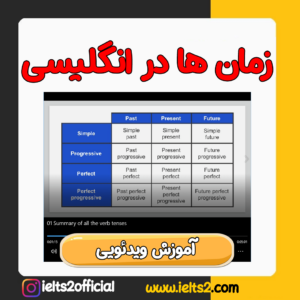نمونه سوالات اسپیکینگ آیلتس درباره مراسم مذهبی (پارت 1 2 3)
در این بخش بیش از 20 مورد از نمونه سوالات اسپیکینگ آیلتس نمره 9 درباره “موضوع مراسم مذهبی” را با هم میبینیم. این مجموعه از آخرین سوالات گزارش شده از سنترهای برگزار کننده آیلتس در ایران و خارج از کشور مربوط به پارت 1، 2 و 3 می باشند و شانس تکرار آن ها در آینده بالاست. در ادامه مطلب همچنین نکات گرامری، لغات و دلایل دریافت نمره 9 را به طور مشخص توضیح داده ایم تا راهنمایی برای علاقمندان باشد. 1000 نمونه سوالات اسپیکینگ آیلتس با جواب PDF پارت 1 2 3 پیشنهاد بعدی ما به شما عزیزان است.
سوالات و پاسخ های اسپیکینگ آیلتس پارت 1 (موضوع مراسم مذهبی)
What religious ceremonies are common in your country?
In my country, religious ceremonies such as Eid al-Fitr, Eid al-Adha, and Ramadan are widely celebrated. These events bring communities together through prayers, feasts, and charitable activities. For instance, during Eid al-Fitr, families gather to pray at mosques and share meals, fostering a sense of unity and gratitude.- Do you participate in any religious ceremonies?
Yes, I actively participate in religious ceremonies, especially during Ramadan. I fast from dawn to sunset, attend nightly prayers, and engage in charitable acts. These practices not only strengthen my faith but also help me connect with my community on a deeper level. - How do people prepare for religious ceremonies?
Preparation for religious ceremonies often involves cleaning homes, buying new clothes, and preparing special meals. For example, before Eid, families decorate their houses, purchase gifts, and cook traditional dishes. This preparation creates a festive atmosphere and enhances the spiritual experience. - What is the significance of religious ceremonies in your culture?
Religious ceremonies hold immense cultural and spiritual significance. They serve as a reminder of our values, traditions, and shared history. For instance, Eid al-Adha commemorates the story of Prophet Ibrahim, teaching lessons of sacrifice and devotion. - How have religious ceremonies changed over time?
Over time, religious ceremonies have evolved with modern influences. While the core rituals remain unchanged, technology has made it easier to organize events and connect with others. For example, live streaming of prayers allows those who cannot attend in person to participate virtually. - Do you think religious ceremonies are important for children?
Absolutely, religious ceremonies play a crucial role in children’s upbringing. They help instill moral values, cultural awareness, and a sense of belonging. For instance, children who participate in Ramadan learn about self-discipline, empathy, and the importance of giving. - What is your favorite religious ceremony and why?
My favorite religious ceremony is Eid al-Fitr because it marks the end of Ramadan, a month of spiritual reflection. The joyous atmosphere, family gatherings, and delicious food make it a memorable occasion. It’s a time to celebrate achievements and express gratitude. - How do religious ceremonies bring people together?
Religious ceremonies foster unity by encouraging collective participation. For example, during communal prayers, people from diverse backgrounds come together, strengthening social bonds and promoting harmony. These events also provide opportunities for reconciliation and forgiveness. - Are there any unique religious ceremonies in your country?
Yes, one unique ceremony in my country is the Ashura procession, where people commemorate the martyrdom of Imam Hussein. Participants engage in mourning rituals, such as reciting poetry and reenacting historical events, to honor his sacrifice and reflect on themes of justice and resilience. How do religious ceremonies impact your daily life?
Religious ceremonies influence my daily life by providing a sense of purpose and direction. They remind me to prioritize spiritual growth, practice gratitude, and maintain strong relationships with family and community. These values guide my actions and decisions.
سوال و پاسخ اسپیکینگ آیلتس پارت 2 (موضوع مراسم مذهبی)
Describe a religious ceremony you have attended. You should say:
What the ceremony was
Where and when it took place
What happened during the ceremony
And explain how you felt about it
One of the most memorable religious ceremonies I have attended was Eid al-Fitr, which marks the end of Ramadan. It took place at my local mosque and in my family home last year. The day began with a special morning prayer at the mosque, where hundreds of people gathered, dressed in their finest clothes. The atmosphere was filled with joy and gratitude as everyone celebrated the completion of a month of fasting and spiritual reflection.
After the prayer, my family and I returned home to prepare a festive meal. We invited relatives and friends, and the house was bustling with laughter and conversation. Traditional dishes, such as biryani and kebabs, were served, and desserts like baklava added a sweet touch to the celebration. Gifts were exchanged, and children received money, which added to the excitement.
What made this ceremony particularly special was the sense of unity and togetherness it fostered. Despite our busy lives, everyone made time to connect and share in the joy of the occasion. I felt a deep sense of gratitude for my family, my faith, and the blessings in my life. This experience reinforced the importance of community and the values of compassion and generosity that Ramadan teaches.

سوالات و پاسخ های اسپیکینگ آیلتس پارت 3 (موضوع مراسم مذهبی)
Why do you think people attend religious ceremonies?
People attend religious ceremonies to fulfill spiritual obligations, connect with their community, and seek solace. These events provide a sense of belonging and reinforce shared values. For example, during difficult times, religious ceremonies offer comfort and hope, reminding individuals of their faith’s teachings.- How do religious ceremonies differ across cultures?
Religious ceremonies vary widely across cultures in terms of rituals, traditions, and significance. For instance, Christmas in Western cultures involves gift-giving and decorating trees, while Diwali in India is celebrated with lights and fireworks. Despite these differences, the underlying themes of gratitude and unity are common. - Do you think religious ceremonies will remain important in the future?
Yes, religious ceremonies will continue to hold importance as they provide a sense of identity and continuity. Even as societies modernize, these events adapt to changing times while preserving their core values. For example, virtual ceremonies have emerged, allowing people to participate regardless of location. - What role do religious ceremonies play in preserving traditions?
Religious ceremonies play a vital role in preserving traditions by passing them down through generations. They serve as a living record of cultural heritage, ensuring that customs, stories, and values are not forgotten. For instance, traditional songs and dances performed during ceremonies keep cultural practices alive. - How do religious ceremonies impact tourism?
Religious ceremonies often attract tourists interested in experiencing different cultures. Events like the Hajj pilgrimage or the Kumbh Mela draw millions of visitors, boosting local economies and promoting cultural exchange. Tourists gain a deeper understanding of the host country’s traditions and beliefs. - Can religious ceremonies promote social harmony?
Yes, religious ceremonies can promote social harmony by bringing people together and fostering mutual respect. For example, interfaith events encourage dialogue and understanding, reducing prejudices and building bridges between communities. - How do religious ceremonies influence art and architecture?
Religious ceremonies have inspired some of the world’s most iconic art and architecture. For instance, cathedrals, mosques, and temples are often designed with intricate details that reflect spiritual themes. Similarly, religious music and paintings convey deep emotional and cultural significance. - What challenges do organizers face when planning religious ceremonies?
Organizers face challenges such as ensuring safety, managing large crowds, and maintaining the authenticity of rituals. For example, during the Hajj, authorities must coordinate logistics for millions of pilgrims while preserving the spiritual essence of the event. - How do religious ceremonies reflect a society’s values?
Religious ceremonies reflect a society’s values by emphasizing themes like compassion, gratitude, and community. For instance, charity drives during Ramadan highlight the importance of helping those in need, while Christmas celebrations underscore the value of family and generosity. Do you think technology has changed religious ceremonies?
Technology has significantly impacted religious ceremonies by making them more accessible. Live streaming, social media, and virtual reality allow people to participate remotely, breaking geographical barriers. However, some argue that this reduces the sense of physical community.
عوامل گرامری و لغوی موثر در نمره 9
- گرامر پیشرفته:
- استفاده از جملات پیچیده با ساختارهای متنوع (مانند جملات شرطی، مجهول و موازی).
- به کارگیری زمان های متناسب (حال، گذشته، آینده) به صورت دقیق و بدون خطا.
- لغات پیشرفته و متنوع:
- استفاده از کلمات سطح بالا مانند “commemorate,” “foster,” و “resilience.”
- به کارگیری اصطلاحات و عبارات مرتبط با موضوع (مانند “spiritual reflection,” “cultural heritage”).
- انسجام و پیوستگی:
- استفاده از linking words مانند “moreover,” “however,” و “for instance” برای ایجاد جریان منطقی در متن.
- پاراگراف بندی واضح و سازماندهی ایده ها به صورت منسجم.
- تلفظ و روانی:
- تلفظ صحیح و طبیعی کلمات.
- استفاده از intonation و stress به منظور تاکید بر نکات کلیدی.
- جزئیات و توسعه ایده ها:
- ارائه مثال های مشخص و توضیحات دقیق برای پشتیبانی از ایده ها.
- پاسخ های کامل و جامع که سوال را به طور کامل پوشش می دهند.
تعیین سطح رایگان اسپیکینگ ❤️
نمونه سوالات اسپیکینگ آیلتس درباره “موضوع مراسم مذهبی” پارت 1 2 3 را به همراه سمپل های نمره 9 آن ها با هم دیدیم. در ادامه نمونه سوالات دسته بندی شده اسپیکینگ آیلتس پیشنهاد آخر ما به دوستان گرامی هست. این نمونه سوالات اسپکینگ از پرتکرار ترین تاپیک های این بخش و همچنین جدیدترین موضوعات می باشند. این مجموعه توسط یکی از سایت های معتبر و فعال آیلتس تنظیم شده است. همچنین برای تعیین سطح و تعیین رایگان نمره اسپیکینگ و دریافت جدید ترین سمپل های نمره 9 در کانال تلگرام اسپیکینگ ما همراه باشید و به ادمین برای تعیین نمره اطلاع دهید.






